Pregnant great white shark washes up on Florida beach
A dead great white shark washed up at Navarre Beach in Florida, where officials determined the shark was pregnant. (Credit: South Santa Rosa News via Storyful)
A great white shark made history last month when she traveled over 2,000 miles from South Carolina to Mexico.
According to Outcast Sport Fishing's owner, Capt. Chip Michalove, LeeBeth the shark is the farthest west a white shark has been tracked in the Gulf of Mexico.
Michalove told Fox News Digital that he tagged the 14-foot and approximately 2,600-pound great white in December 2023.
"The big ones don't show up until January or February. I was really surprised to see the width of this one," Michalove said.
"Just seeing it swim up makes the hair on your neck stand up," he added.
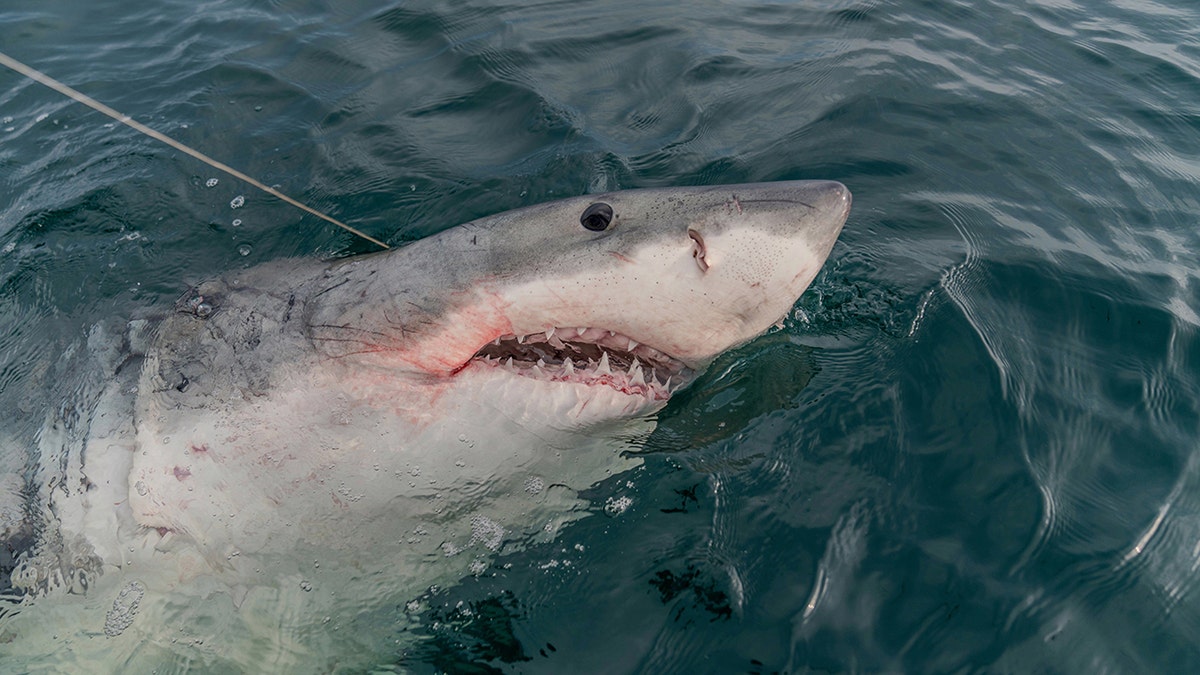
LeeBeth the white shark was first tagged off Hilton Head, S.C., in December 2023. (Capt. Chip Michalove)
Michalove, who had been working together with the Atlantic White Shark Conservancy (AWSC) to tag and track sharks, said that LeeBeth is a "home run" in their research efforts.
"And it turns out she's a home run when it comes to the whole pinging and tracking her," Michalove told Fox News Digital. "She's the first shark in history to be tagged in the Atlantic and swim all the way to the way to the western part of the Gulf of Mexico. And she's been pinging like 200 yards off their beaches."
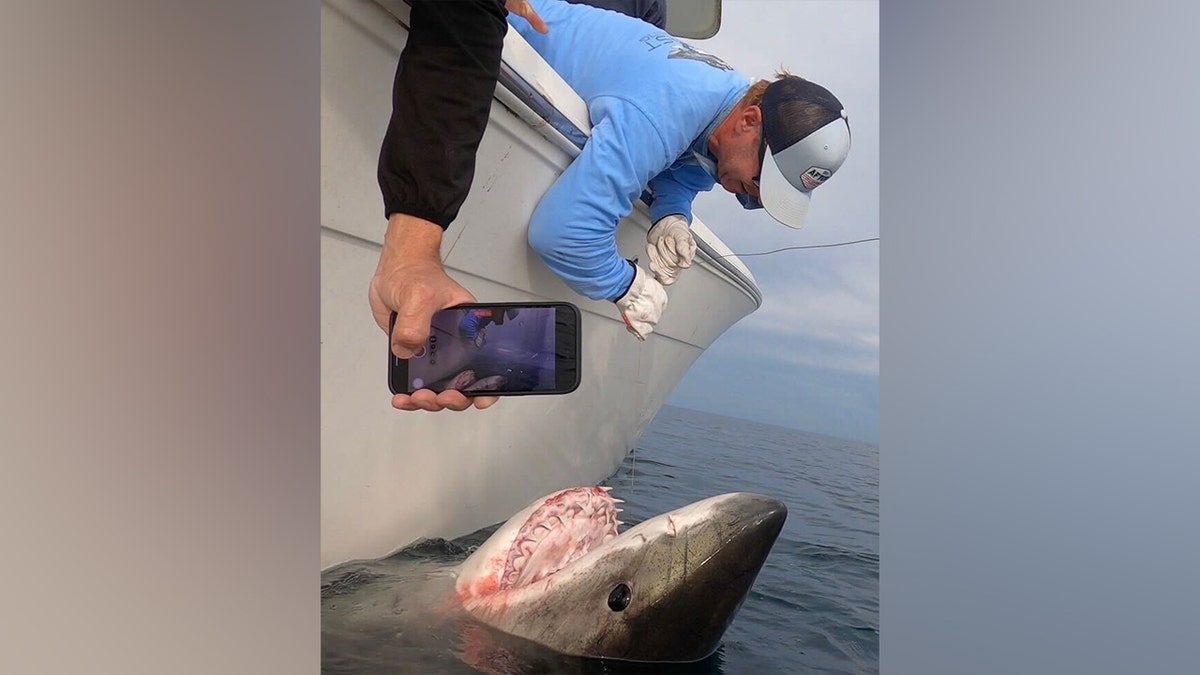
Capt. Chip Michalove with LeeBeth. The charter fisherman said that he works alongside the Atlantic White Shark Conservancy (AWSC) to tag and track sharks. (Capt. Chip Michalove)
The charter fisherman said that he's worked alongside AWSC for years and only a handful of the tagged sharks venture to the Gulf of Mexico.
‘FIRST-EVER SIGHTING’ OF NEWBORN GREAT WHITE SHARK POSSIBLY CAPTURED IN CALIFORNIA
Michalove said that LeeBeth "kept charging."
"She just kept going. She kept charging. And she's also the first one that went into Mexico," he said. "As of this morning and she's as of this morning, she's off Corpus Christi, Texas."
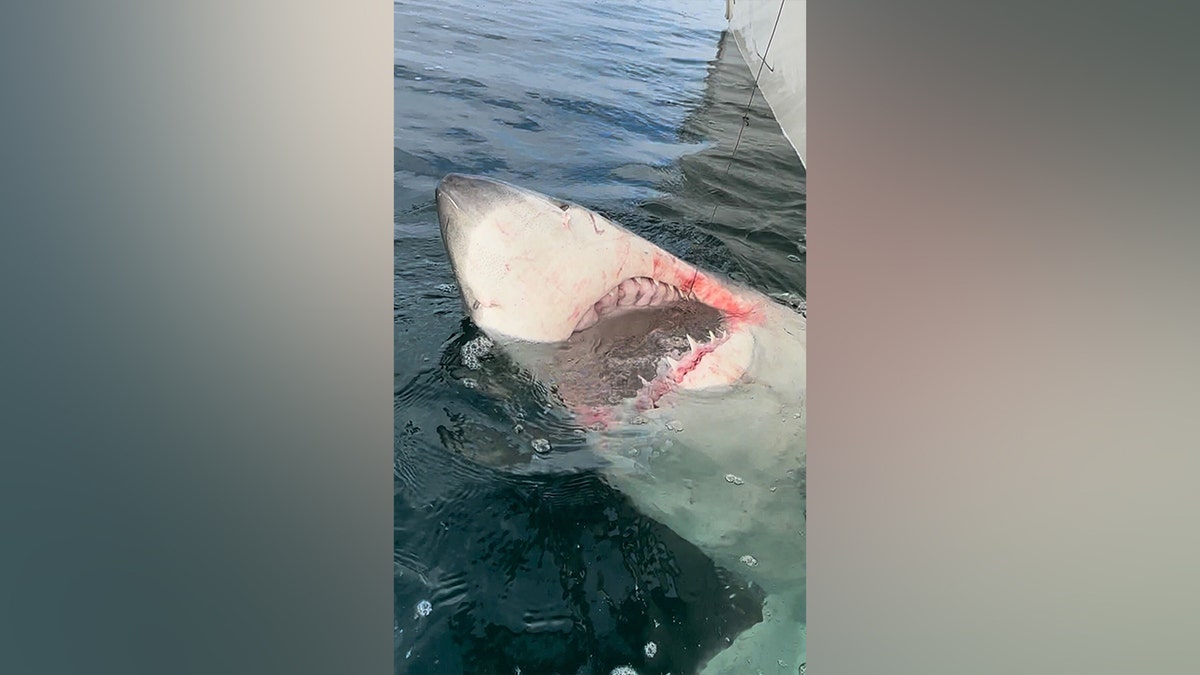
LeeBeth was tagged in Hilton Head, S.C., but has traveled thousands of miles to the Gulf of Mexico. (Chip Michalove)
Michalove explained that the data gathered from LeeBeth is aiding research efforts.
CARCASS OF PREGNANT GREAT WHITE SHARK WASHES UP ON FLORIDA BEACH
"I teamed up with some really big great white scientists who are really knowledgeable about it, and it's been an awesome, teamwork venture," Michalove said. "They are getting data that they have never had before, and I get to see what happens after I release them."
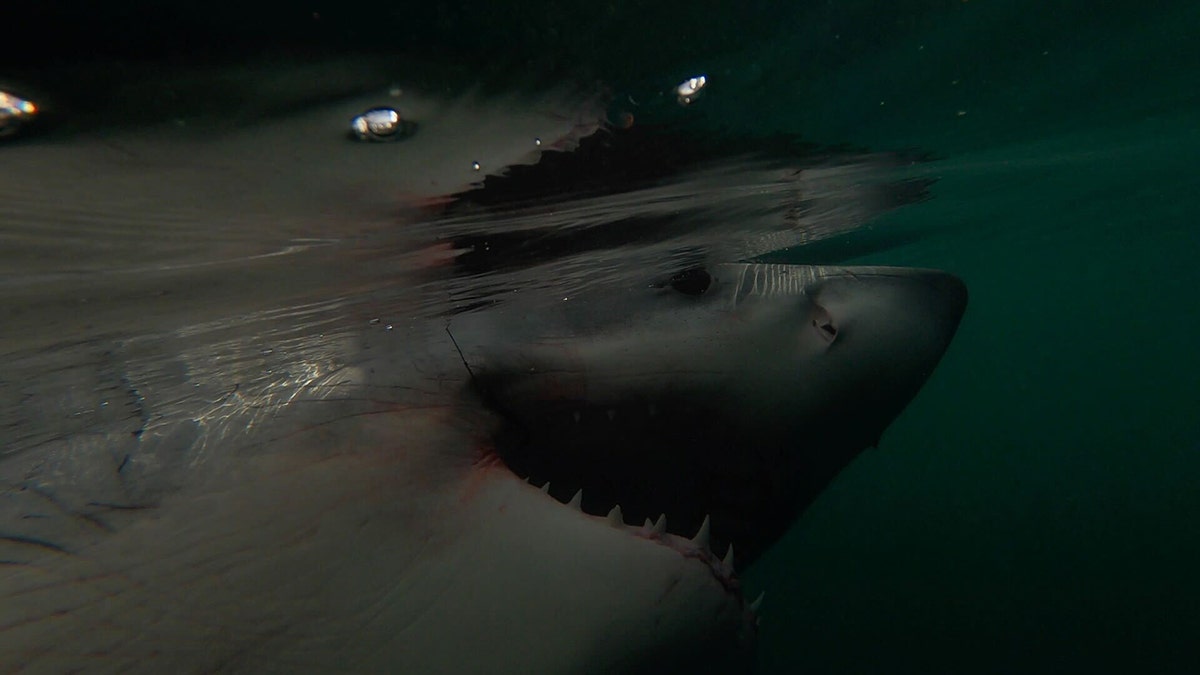
LeeBeth made history last month when she traveled from South Carolina to Mexico. (Chip Michalove)
Michalove said that it was "wild" to watch the large white shark travel the thousands of miles.
"It's been wild watching the shark," he told Fox News Digital. "She's a great pinging shark because she spends a lot of time on the surface because that's what makes her satellite connect."
"She's traveling to areas that we've never had before," he added.
CLICK HERE TO SIGN UP FOR OUR LIFESTYLE NEWSLETTER
Michalove said that tracking LeeBeth has become a daily part of his routine.
"It is really cool! So the first thing I do is grab my phone and where she pinged," he said. "And now we don't know what's going to happen."
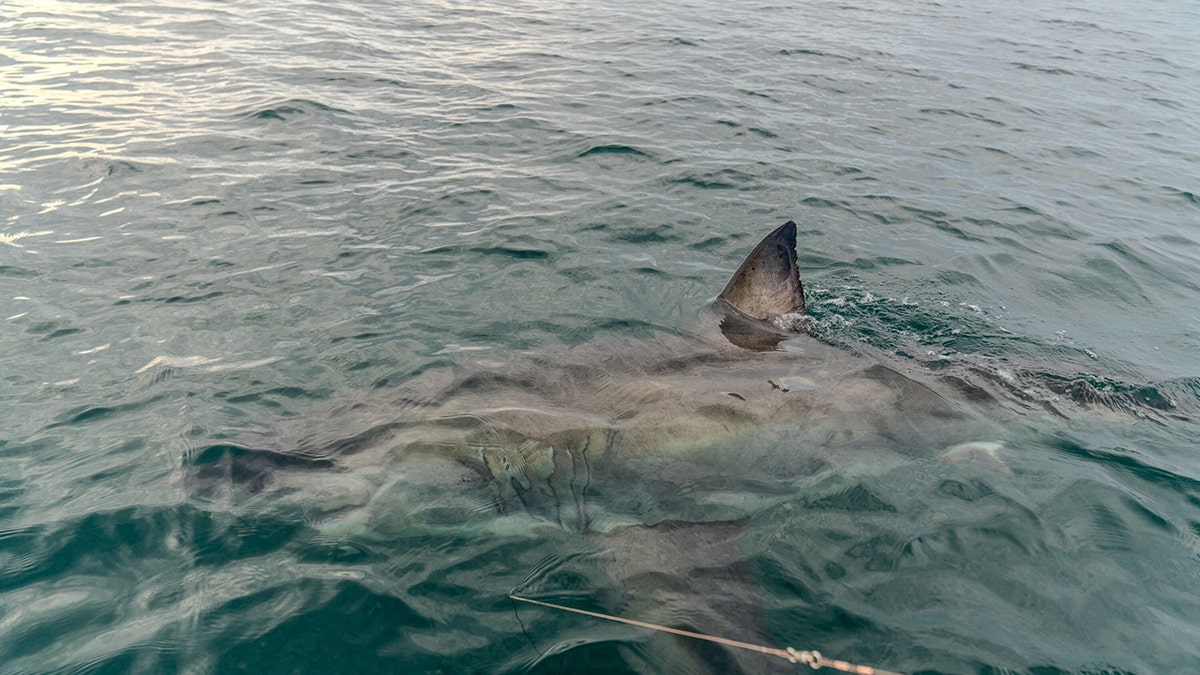
Capt. Chip Michalove believes that LeeBeth might travel back up north during the warmer months. (Capt. Chip Michalove)
Michalove said that he suspects that LeeBeth will travel back up north to New England or into Canada as the weather warms.
The shark tracker explained that it is typical for large sharks to migrate between Canada to Florida — but never all the way down to the western beach side of the Gulf of Mexico.
CLICK HERE TO GET THE FOX NEWS APP
"It's really bizarre," Michalove said. "This is definitely the first one for any shark organization to track."
For more Lifestyle articles, visit www.foxnews.com/lifestyle.











































